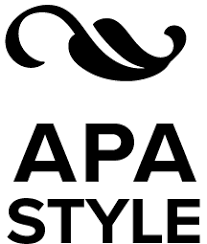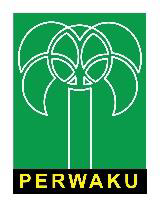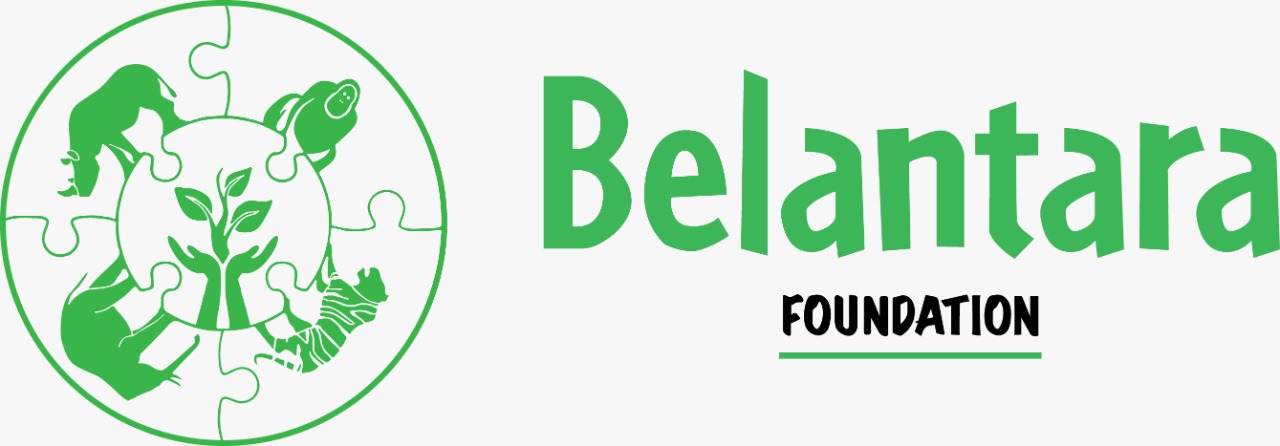Natural resources management to deliver Sustainable Development Goals (SDGs)
Abstract
Indonesia is known as a rich natural resources country, but at the same time has a problem of water shortage, soil degradation, pollution, agriculture and forest production, biodiversity conservation, and mineral and energy sustainability. The national natural resources management planning alignment with SDGs programme, particularly the water resources management, afforestation programme, a guide for sustainable management of Indonesias biodiversity, government and non-government organizations participant in conservation practice, exploring alternative energy sources to reduce dependence on oil, mainstreaming of SDGs into National Development agenda, National Action Plan, and SDGs program for Sub-national level. This program was participated by all stakeholders included government, civil society organizations, philanthropy and business society, academics as well as experts. This literature review paper will discuss about the natural resources management to deliver sustainable development goals programme in Indonesian, with specific and focus topics for water and pollution, soil, land product (agriculture, forest and biological resources), mineral and energy. The objective of this paper was to describe the alignment of the natural resources management planning and SDGs programme as evaluation to improve their implementation in Indonesia. Though the government has already implemented SDGs program but innovative strategic need to be developed.
Indonesia dikenal sebagai negara yang kaya sumberdaya alam, tetapi pada saat yang sama menghadapi masalah kelangkaan air, degradasi lahan, polusi, produksi pertanian dan kehutanan, konservasi keanekaragaman hayati, keberlangsungan mineral dan energi. Rencana pengelolaan sumberdaya alam nasional sejalan dengan program SDGs, khususnya terkait pengelolaan air, program perhutanian, pengelolaan keanekaragaman hayati secara berkelanjutan, pemerintah dan para pihak yang berpartisipasi dalam praktek konservasi, eksplorasi energi alternatif untuk mengurangi ketergantungan pada minyak bumi, dan pengarus-utamakaan program SDGs ke dalam agenda pembangunan nasional, rencana aksi nasional, dan program di tingkat wilayah. Program ini diikuti oleh seluruh para pihak, termasuk pemerintah, organisasi masyarakat sipil, masyarakat bisnis dan filantropi, kaum akademisi dan para ahli. Studi Pustaka ini akan membahas tentang pengelolaan sumberdaya alam untuk mencapai program pembangunan berkelanjutan di Indonesia, khususnya tentang masalah air, polusi, produsi lahan (meliputi pertanian, hutan, sumberdaya biologi), mineral dan energi. Tujuan penulisan naskah adalah untuk memberikan gambaran keterkaitan antara rencana pengelolaan sumberdaya alam dan pelaksanaan program pembangunan berkelanjutan, sebagai evaluasi untuk meningkatkan implementasinya di Indonesia. Meskipun pemerintah telah melaksanakan program SDGs, tetapi strategi yang inovatif perlu dikembangkan.Keywords
References
Agussalim, D., Ahmad Rizky, Umar, A.M., Larasati, K. and Tobing, D.H. (2019). Localizing the Sustainable Development Goals: Assessing Indonesias Compliance towards the Global Goals
Researchgate. Preprint.· June 2019: 39-62. DOI: 10.1163/9789004391949_003. https://www.researchgate.net/publication/333774235.
Bich, T.T.N., Yi-Ching, C., Tri, D.Q., and H.D. Khoa (2020). Applied aquaponics to culture high value local species and ultimately reused and recycle the local materials to build the green and sustainable agriculture. International Conference on Resources and Environmental Research 2019, IOP Conf. Series: Earth and Environmental Science IOP Conf. Series: Earth and Environmental Science 432 (2020) 012008 IOP Publishing doi:10.1088/1755-1315/432/1/012008.
Bryant, P.J. (2020). The Science of Biodiversity and Conservation, University of California, Irvine, Irvine, CA 92697, USA.
Dinpanah, G. and F. Lashgarara (2008). Designing an Optimum Model for Protection and Improvement of Sustainability of Natural Resources and Environment in Iran. Ann. N.Y. Acad. Sci. 1140: 6067 (2008). C _ 2008 New York Academy of Sciences. doi: 10.1196/annals.1454.029
Dutu, R. (2015). Making the most of natural resources in Indonesia. OEDC Economics Department Working Papers No. 1236, 28-May-2015. https://dx.doi.org/10.1787/5js0cqqk42ls-en.
Fulazzaky, M.A. (2014). Challenges of Integrated Water Resources Management in Indonesia. Water (6), 2000-2020; doi:10.3390/w6072000
Hidayat, A. (2009). Indonesian Land Resources: Potency, Problems, And Utilization Strategy. Jurnal Sumberdaya Lahan (3) 2: 107-117. ISSN 1907-0799.
ICAR (2020). Renewable Energy e-course of ICAR. www.agrimoon.com.
Conservation International Indonesia (2020). https://www.conservation.org/places/indonesia.
Ja¨germeyr, J., Pastor, A., Biemans, H. and D. Gerten. (2017). Reconciling irrigated food production with environmental flows for Sustainable Development Goals implementation. Nature Communications. DOI: 10.1038/ncomms15900. Nat. commun. (8): 1-9.
Keesstra, S.D., Bouma, J., Wallinga, J., Tittonell, P., Smith, P., Cerdà , A., Montanarella, L., Quinton, J.N., Pachepsky, Y., Wim H. van der Putten, Bardgett, R.D., Moolenaar, S., Mol, G., Jansen, B. and O.L.O. Fresco (2016). The significance of soils and soil science towards realization of the United Nations Sustainable Development Goals. Soil (2): 111128. www.soil-journal.net/2/111/2016/doi:10.5194/soil-2-111-2016 © Author(s) 2016. CC Attribution 3.0 License.
Lal, B.S. (2020). A Review of understanding sustainable sanitation. International Journal f or Innovative Research in Multidisciplinary Field. 6 (5): 358-385., ISSN: 2455-0620, Available online on www.ijirmf.com.
Minister of National Development Planning (2017). Head of National Development Planning Agency. Republic of Indonesia Voluntary National Review (VNR) ‘Eradicating Poverty and Promoting Prosperity in a Changing World.
Nalang, V.S. (2003). Indonesian Biodiversity And Action Plan 2003-2020. Head Division For Biodiversity Conservation Instruments, Ministry of Environment.
Nalang, V.S. (2009). Mainstreaming Biodiversity into national, local and sectoral policies and programmes Indonesia. Ministry of Environment Montreal, 13-15 May 2009.
Owen, O. (1985). Natural Resources Conservation, An Ecological Approach. Macmillan Publishing Company, New York.
Phelps, J., Hariyanti, B., Sinaga, A.C., and A. Dermawan (2014). Environmental Valuation in Indonesia Implication for forest policy, legal liability and state losses estimates. CIFOR. Brief, 31 October 2014. cifor.org.
Rasul, G. (2016). Managing the food, water, and energy nexus for achieving the Sustainable Development Goals in South Asia. Environmental Development. journal homepage: www.elsevier.com/locate/envdev Science Direct, Elsevier (18): 1425.
Rio (2012). Natural Resources Indonesia, January 11, 2012, About of indonesia.blogspot.com/2012/01/natural-resources.
Sahaa, R., Deya, N.C., Rahman, S., Galagedarac, L. and P. Bhattacharyad (2018). Exploring suitable sites for installing safe drinking water wells in coastal Bangladesh. Groundwater for Sustainable Development 7: 91100. journal homepage: www.elsevier.com/locate/gsd. Contents lists available at ScienceDirect, Elsevier
Sawe, B.E. (2018). What are the major natural resources of Indonesia?. World Atlas, Oct. 19, 2018, worldatlas.com/articles/what-are-the-major-natural-resources-of-indonesia.html.
Shubhra and Palwal (2019). Green Chemistry: A Roadmap for Sustainable Agricultre in India. International Journal of Multidisciplinary Educational Research Volume 8, Issue 5(2):124-131. ISSN: 2277-7881. Published by Sucharitha Publications 48-12-3/7, Website: www.ijmer.in.
Starbird, E., Norton, M. and R. Marcusa (2016). Investing in Family Planning: Key to Achieving the Sustainable Development Goals. Global Health: Science and Practice (4)2: 191-210.
van Dijk, A.I.J.M.., Bruijnzeel, L.A., and Purwanto, E. (2004). Soil Conservation In Upland Java, Indonesia: Past Failures, Recent Findings And Future Prospects. Isco 2004 - 13th International Soil Conservation Organisation Conference Brisbane, July 2004, Conserving Soil And Water For Society: Sharing Solutions. 6p.
Waldron, A., Garrity, D., Malhi, Y., Girardin, C., Miller, D.C. and N. Seddon (2017). Agroforestry Can Enhance Food Security While Meeting Other Sustainable Development Goals. Tropical Conservation Science DOI: 10.1177/1940082917720667 journals.sagepub.com/home/trc, Special Issue: Commercial Agriculture in Tropical Environments. (10): 16.
WCED (1987). Our common future. Oxford: Oxford University Press for the World Commission
on Environment and Development.
World Water Council (2003). Water Resources Management Towards Enhancement of Effective
Water Governance in Indonesia. Ministry of Settlements and Regional Infrastructure, Directorate General of Water Resources, Republic of Indonesia. For The 3rd World Water Forum
Kyoto Japan, March 2003.ISBN: 92-95017-03-X.
Xiao, W., Mills, J., Guidi, G., RodrÃguez-Gonzálvez, P., Barsanti, S.G. and D. González-Aguilera (2018). Geoinformatics for the conservation and promotion of cultural heritage in support of the UN Sustainable Development Goals. ISPRS Journal of Photogrammetry and Remote Sensing 142: 389406. Contents lists available at ScienceDirect. Elsevier. journal homepage: www.elsevier.com/ locate/ isprsjprs.
Yusuf, G. (2016). Integrating SDGs to Development Plan. Deputy Minister for Maritime and Natural Resources. Thailand Meeting, Bangkok, 24-25 Oktober 2016.
DOI: 10.33751/injast.v1i2.2188
 Abstract views : 1684
Abstract views : 1684
Refbacks
- There are currently no refbacks.
Copyright (c) 2020 Indonesian Journal of Applied Environmental Studies

This work is licensed under a Creative Commons Attribution-NonCommercial-ShareAlike 4.0 International License.













